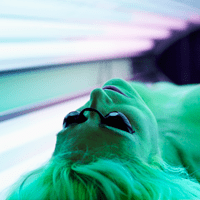When you’re overcoming an addiction, staying sober is a full-time job. Whether it’s the rigid schedule of a rehab center or your own internal battles with cravings, you have a lot on your mind in the earliest stages of recovery. But then it all falls away—fewer rehab commitments you’re just spending less time thinking about your substance or behavior of choice—and you find yourself awash with free time, sitting idle and lonely. To help with this difficult transitional period, The Fix writer Zachary Siegel suggests reading to fill the time and expand your mind. He lists five of the books that helped him, in no particular order, to help you cope with early sobriety. These aren’t specifically “recovery” books, either, just ordinary works of fiction and non-fiction with the power to promote understanding and acceptance of the human condition.
- The Outsider by Albert Camus – The plot of Camus’ novel sounds pretty grim and irrelevant to recovery: an apathetic man murders an Arab on the beach for no clear reason, then the remainder of the book talks about his experience in jail as he goes through the trial for his crimes. Along the way, though, it charts some important ground about the nature of the self, touching on themes like death, indifference, love and hate. In the end, the book becomes more openly life-affirming: “In the midst of winter, I found there was, within me, an invincible summer … and that makes me happy. For it says that no matter how hard the world pushes against me, within me, there’s something stronger—something better, pushing right back.”
- This is Water by David Foster Wallace – This book was originally a commencement speech given at Kenyon College in 2005 by Wallace, and although that may not sound particularly interesting or life-affirming, it asks questions important to everybody, but especially those in recovery. “If you worship money and things, if they are where you tap real meaning in life, then you will never have enough, never feel you have enough. It’s the truth. Worship your body and beauty and sexual allure and you will always feel ugly. And when time and age start showing, you will die a million deaths before they finally grieve you.” Siegel points out that addicts “worship” things like syringes or bottles of liquid, which hold power over us, and this type of belief, in Wallace’s words, “will eat you alive.”
- Works of Love by Søren Kierkegaard – Kierkegaard was a spiritually tormented man; pondering unanswerable questions and laying the foundations for the existentialists that followed him by asking how we should live when we have no clear answers to the deep questions that beset us. Siegel suggests reading anything from the Danish philosopher, but a quote from Works of Love shows particularly well how his work translates to questions of addiction and recovery: “What is more difficult—to awaken someone who is sleeping or to awaken someone who awake, is dreaming that he is awake? Which is sadder, the sight that promptly and unconditionally moves one to tears, the sight of someone unhappily deceived in love, or the sight that in a certain sense could tempt laughter, the sight of the self-deceived, whose fatuous conceit of not being deceived would indeed be ridiculous and laughable if the ridiculousness of it were not an even stronger expression for horror, since it shows that he is unworthy of tears.”
- Man’s Search for Meaning by Victor Frankl –This is the most openly self-help-y book on the list, and was originally given to Siegel by his counselor when he expressed his concerns with the 12-step ideology. The first part is an unrelentingly horrible yet factual account of Frankl’s experience in Auschwitz and other concentration camps during the Second World War. The second part is the really relevant bit, though, where he walks the reader through his own form of existential therapy called logotherapy (from the Greek logos, meaning “here”), grappling with tough questions and the nature of searching for meaning in your own life: “Ultimately, man should not ask what the meaning of his life is, but rather must recognize that it is he who is asked. In a word, each man is questioned by life; and he can only answer to life by answering for his own life; to life he can only respond by being responsible.”
- Congratulations, By the Way: Some Thoughts on Kindness by George Saunders – This is another commencement speech-turned-book, talking on a fundamental level about kindness in a way that strikes right to the core of the reader (you can read it online). The core value of the book for recovery is what it says about our selfish tendencies (a term which would obviously include addiction), and how we can rise out of them through the power of kind, selfless acts. Ultimately, it’s about bettering yourself. “There’s a confusion in each of us, a sickness, really: selfishness. But there’s also a cure. So be a good and proactive and even somewhat desperate patient on your own behalf—seek out the most efficacious anti-selfishness medicines, energetically, for the rest of your life.”
These books have the capacity to teach everybody something, but when you’re in the early stages of recovery, all of them have the power to strike a chord with you on a deep and recfundamental level. Books can be a companion when you feel like you don’t have one, and represent the pearls of wisdom handed down by some of the greatest minds in human history. As Siegel puts it: “These writers taught me how to be alone and not be lonely, how to embrace what suffering comes my way, how to be responsible for my own life, and most of all, each one of these thinkers puts an emphasis on living a conscious alert life, one that is lived with others whom we can love. That is the best anti-addiction antidote there is.”

